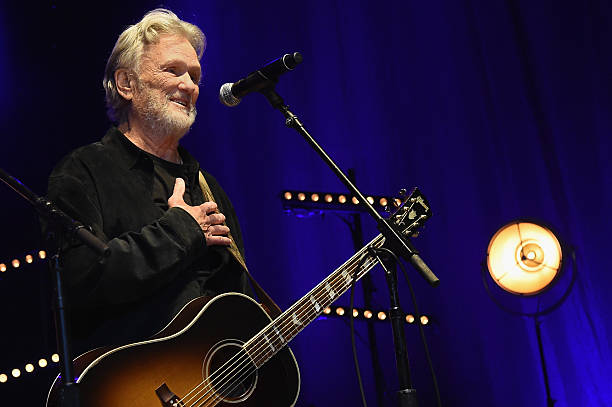 Introduction and Short Summary of the Song
Introduction and Short Summary of the Song
“The Promise” is a poignant track from Kris Kristofferson’s 1990 album Third World Warrior. Unlike some of the record’s more overtly political and confrontational songs, “The Promise” takes on a quieter, more reflective tone. It is a ballad of love, commitment, and resilience, where Kristofferson’s weathered voice delivers a heartfelt message about staying true to someone through life’s hardships. The song demonstrates one of his great strengths as a songwriter: the ability to balance personal intimacy with broader philosophical reflections.
Origins of the Song
By the late 1980s, Kris Kristofferson had lived a life marked by extremes—critical acclaim as a songwriter, mainstream recognition as an actor, political activism, failed relationships, and the struggles of balancing fame with personal responsibility. Third World Warrior was recorded during a period when Kristofferson was pouring his energy into both political causes and deeply personal reflections.
---> Scroll down for the VIDEO
“The Promise” emerged from this duality. It was not about geopolitics or activism but about the human need for loyalty, stability, and trust. After a life full of turbulence, Kristofferson wrote with the perspective of someone who understood how rare and precious it was to make—and keep—such a promise.
Why Kris Kristofferson Released “The Promise”
Kristofferson chose to release “The Promise” because it offered balance to the intensity of Third World Warrior. While songs like “Sandinista” and “Worth Fighting For” challenged political structures, “The Promise” turned inward, focusing on the endurance of love. It reminded listeners that alongside his firebrand activism, Kristofferson was also a poet of the heart, capable of expressing tenderness with devastating simplicity.
---> Scroll down for the VIDEO
By including this song, he demonstrated that personal loyalty and intimacy were as essential to the human spirit as the struggle for justice.
The Message Conveyed in the Song
“The Promise” conveys a message of enduring love, devotion, and trust.
Key themes include:
-
Commitment: The narrator assures his partner of unwavering loyalty, even through hardship.
-
Resilience in Love: Love is not portrayed as idealized perfection but as a bond that survives storms.
-
Sincerity: The lyrics emphasize truth and honesty in relationships, rejecting superficial gestures.
-
Faith in Connection: The promise is not only romantic but almost spiritual in its depth, highlighting love as a guiding force in life.
The song resonates universally because it reflects a fundamental human desire: to find someone whose presence can be trusted, no matter what.
The Recording and Musical Characteristics
“The Promise” follows the stripped-down yet emotionally charged production style of Third World Warrior.
-
Vocals: Kristofferson’s gravelly voice, aged and raw, imbues the lyrics with authenticity. The imperfections in his delivery heighten the emotional impact.
-
Instrumentation: Primarily acoustic guitar, with minimal accompaniment, ensuring the intimacy of the lyrics takes center stage.
-
Mood: Tender, reflective, and sincere, with an undercurrent of quiet strength.
-
Style: A folk-country ballad, leaning toward confessional songwriting rather than polished commercialism.
The recording feels like a direct conversation between Kristofferson and the listener—intimate and unguarded.
Cultural and Commercial Impact
Commercially, “The Promise” was not released as a single and did not become a major hit. Third World Warrior itself was not a commercial success, as its politically charged content alienated much of the mainstream market. However, for fans and critics, “The Promise” was one of the songs that stood out as a reminder of Kristofferson’s versatility.
Culturally, the song added depth to his image as an artist of conscience. It showed that while he was unafraid to confront injustice, he also had the courage to expose his own vulnerabilities. “The Promise” aligned him with the tradition of great singer-songwriters who treated love as both fragile and enduring.
Legacy of “The Promise”
Today, “The Promise” remains a lesser-known but emotionally rich entry in Kris Kristofferson’s catalog. Though overshadowed by his iconic early hits, it continues to resonate with listeners drawn to his later work’s honesty and humility.
For Kristofferson’s legacy, the track reinforces his identity as an artist unafraid of sincerity. It proves that his songwriting was not just about politics, rebellion, or existential searching but also about the everyday struggles and triumphs of love.
More broadly, “The Promise” serves as a universal testament to commitment. It reminds listeners that the real strength of love lies not in fleeting passion but in the promise to endure through difficulty.
Decades after its release, the song stands as a quiet but profound statement of faith in love’s resilience. For those who look beyond Kristofferson’s most famous songs, “The Promise” offers an intimate glimpse into the heart of a songwriter who always sought truth—whether in politics, philosophy, or relationships.